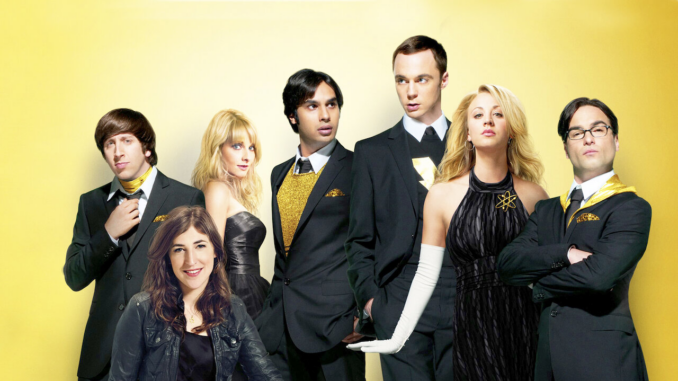
The series finale of The Big Bang Theory was one of the most anticipated television events of 2019. After 12 seasons of laughter, heartfelt moments, and scientific shenanigans, fans were eager to see how the beloved sitcom would conclude. But what made this finale even more special was the extreme secrecy surrounding it.
The producers, writers, and cast members went to great lengths to prevent leaks, ensuring that the final episode remained a complete surprise. From fake scripts to strict security measures, the production team orchestrated a secrecy plan unlike any other in sitcom history.
Let’s dive into the behind-the-scenes efforts that kept the Big Bang Theory finale a mystery until the last moment.
Why Keeping the Finale a Secret Was Crucial
With millions of devoted fans worldwide, any leaked spoilers could have ruined the emotional impact of the finale. Show creator Chuck Lorre explained,
“We knew the finale would be emotional and that fans would want to experience it in real-time.”
To protect this experience, the team developed an airtight strategy to prevent leaks from the cast, crew, and even the live studio audience.
Fake Scripts and Alternate Endings
One of the biggest tactics used to keep the finale under wraps was the creation of fake script pages.
- Writers developed multiple alternative endings to prevent any single script from revealing the true conclusion.
- The final table read included decoy scenes in case any details were leaked.
- Even during rehearsals, critical moments—like Sheldon’s Nobel Prize speech—were kept hidden from most of the crew.
Co-creator Bill Prady stated,
“We didn’t want anyone outside the core group to know exactly how things would wrap up.”
Banning Phones in the Studio
Live audiences had always been a key part of The Big Bang Theory, contributing to the show’s comedic timing. However, during the filming of the finale, an unprecedented rule was enforced—no phones allowed.
- Audience members were required to hand over their devices before entering the studio.
- This was a rare measure for the show, proving how serious the team was about keeping spoilers from spreading online.
- Cast members were also asked to limit their social media activity to prevent any accidental hints.
Actress Kaley Cuoco, who played Penny, admitted,
“We loved having a live audience, but we couldn’t risk spoilers getting out.”
Restricted Access to the Script
To reduce the chances of leaks, the final script was shared only with a select group of trusted individuals.
- Most production crew members saw only the scenes they were directly involved in.
- Some guest stars, including Christine Baranski (Beverly Hofstadter) and Laurie Metcalf (Mary Cooper), received only their specific lines.
- Even the core cast members were kept in suspense until the very end.
Johnny Galecki, who portrayed Leonard, confessed,
“Even our families didn’t know how it would end.”
A Fake Episode Title to Mislead Paparazzi
Another layer of secrecy involved giving the final episode a fake working title.
- This tactic helped prevent the media from figuring out major plot points.
- Cast members were instructed to refer to the episode by its placeholder name to keep journalists off track.
The Emotional Moment When the Cast Read the Real Script
When the actors finally saw the real ending, their reactions were genuine and heartfelt.
- Jim Parsons, who played Sheldon Cooper, shared,
“Once we saw it all come together, we couldn’t hold back tears.”
- The finale was so emotional that many scenes were filmed in a single take to capture the raw, unscripted reactions of the cast.
Director Mark Cendrowski revealed,
“The emotion you see on screen was real.”
Strict Social Media Rules Even After Filming
The secrecy didn’t end when the cameras stopped rolling.
- The cast agreed not to post any behind-the-scenes content until after the finale aired.
- Official farewell messages and photos were only shared after fans had seen the episode, ensuring no spoilers surfaced early.
The Fans’ Reaction to the Surprise Ending
Because of the production team’s extraordinary efforts, the series finale aired without any leaks.
- Fans were deeply moved by the final moments, which honored the show’s 12-year journey.
- The episode was praised for providing a satisfying and emotional conclusion.
- Many viewers appreciated how the finale paid tribute to each character’s growth while staying true to the heart of the show.
Kaley Cuoco summed it up perfectly,
“Keeping the secret was hard, but it made the final moment even more magical.”
Final Thoughts: The Perfect Send-Off
The series finale of The Big Bang Theory will always be remembered as an emotional and well-executed conclusion. The dedication to secrecy allowed fans to experience the ending as intended—without spoilers, without leaks, and with maximum emotional impact.
By using fake scripts, restricted access, and strict security measures, the production team ensured that the series’ final moment remained a heartfelt surprise until it aired.
For fans, it was more than just an ending—it was a farewell to a group of characters that had become family.
FAQs
1. Why did the producers go to such great lengths to keep the finale secret?
The creators wanted to ensure fans experienced the ending in real-time without spoilers ruining the emotional impact.
2. Were there any leaked spoilers before the final episode aired?
No, thanks to extreme secrecy measures, there were no major leaks before the finale was broadcast.
3. Did the cast members know the ending before filming?
Most of the cast only saw the real script shortly before filming the final scenes, keeping their reactions genuine.
4. How did the audience react to the Big Bang Theory finale?
Fans generally loved the finale, appreciating the emotional and heartfelt conclusion to the long-running sitcom.
5. Were there any alternate endings planned for the finale?
Yes, the writers created multiple fake endings to prevent leaks, but the final version was always the intended conclusion.
